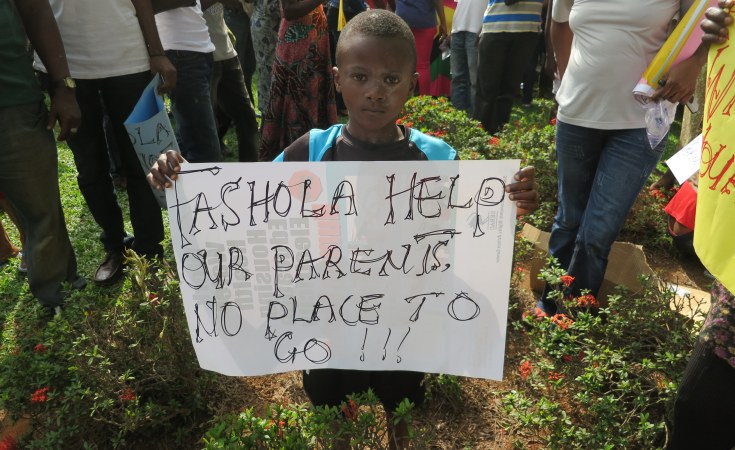Cape Town — Tens of thousands of people living in the Badia East area of Lagos face forced eviction from their homes by the Lagos State government, and possible destitution as a result, warn two NGOs in a new report.
Amnesty International and the Lagos-based Social and Economic Rights Action Center (SERAC) released a report today documenting evictions carried out in the first phase of a U.S. $200 million World Bank-funded redevelopment project. Homes were demolished during the evictions, which occurred in February.
The NGOs say the evictions violated African and international charters on human rights. If the Lagos government goes ahead with its current plans, they add, the project "risks being diverted from the intended beneficiaries, Badia residents, to more affluent residents of Lagos State".
Amnesty and SERAC are calling on the governor of Lagos State, Babatunde Fashola, to publicly commit to stopping forced evictions, and on the World Bank to put safeguards in place to ensure it does not support any activities which may result in forced evictions in the future.
Their report says about 9,000 residents, who were evicted in February without advance notice, lost their homes or livelihoods and dozens of people are still sleeping out in the open or under a bridge.
"The Lagos State government has given completely contradictory accounts of the eviction," the NGOs said in a statement accompanying their report.
"While the ... state attorney-general acknowledged that people had been evicted... the Lagos State Commissioner for Housing told Amnesty International in a meeting that the area cleared during the demolition contained no houses and was just a rubbish dump."
But satellite imagery from February and April "clearly exposes this as a fabrication." Photos taken before the demolitions showed high-density structures in the area, while those taken afterwards shows they had been razed.
View a photo essay on Badia East >>


